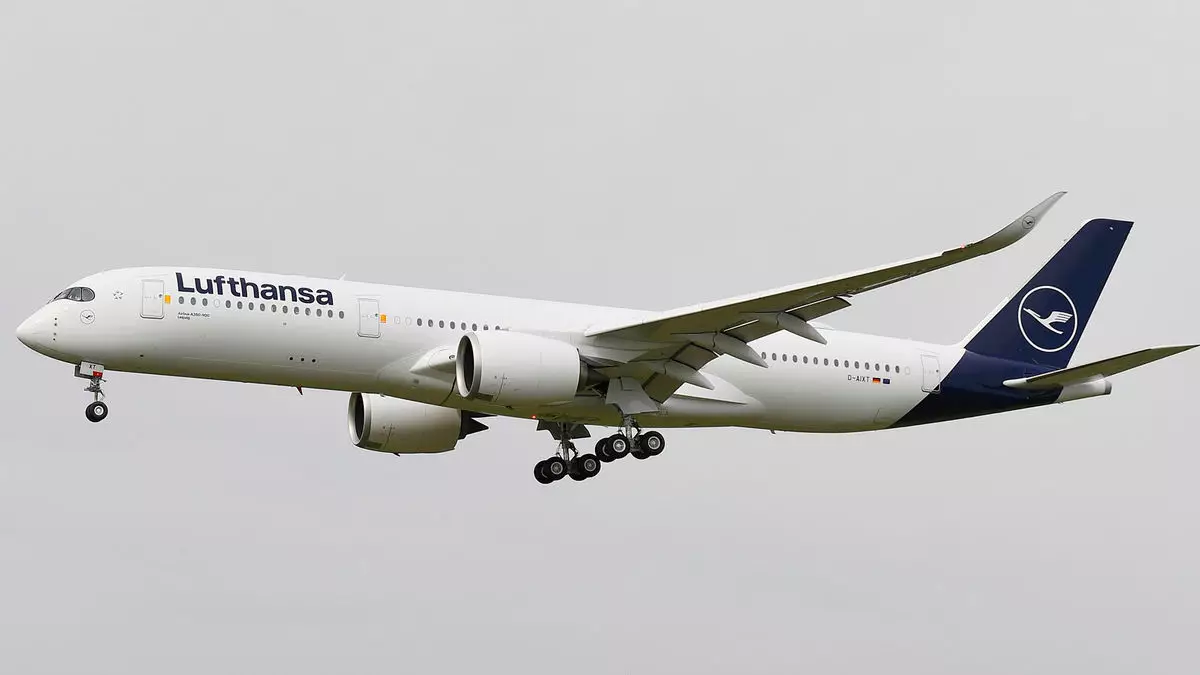In May 2022, a troubling incident unfolded aboard a Lufthansa flight from New York’s JFK Airport to Budapest, with a layover in Frankfurt. Travelers, predominantly Orthodox Jewish men en route to commemorate a rabbi, found themselves embroiled in a controversy that would lead to legal ramifications and public scrutiny. The crux of the issue revolved around Lufthansa’s imposition of certain pandemic-era regulations, specifically face mask mandates and restrictions on crowding in aisles. Following complaints, 128 out of 131 passengers were denied boarding for their connecting flight to Budapest based on alleged violations of these rules.
The Department of Transportation (DOT) swiftly responded by imposing a hefty $4 million fine on Lufthansa, citing discriminatory practices against a group defined largely by their shared religious identity. The implications are significant, as such actions fall under the purview of federal regulations designed to protect against discrimination in air travel.
The DOT’s ruling highlights crucial points tied to civil rights protections within transportation. According to their consent decree, Lufthansa’s actions were deemed discriminatory as they broadly penalized a group rather than isolating identified offenders. While the airline argued the necessity of safeguarding compliance with safety protocols, the failure to pinpoint individual violators raised questions about the execution of these regulations.
This incident underscores a broader challenge within the airline industry: the balance between enforcing compliance and upholding individual rights. In a post-pandemic environment, airlines are grappling with the need to mandate public health measures while ensuring that such mandates do not disproportionately affect specific ethnic or religious groups.
In the aftermath of the incident and the subsequent fine, Lufthansa has made a concerted effort to mend its public image and reaffirm its commitment to tolerance and diversity. The airline announced a partnership with the American Jewish Committee to formulate a training program aimed at educating its staff about antisemitism and discrimination.
This move appears to be an essential step for Lufthansa. However, it also raises questions about why such programs did not exist prior to this incident. The effectiveness of these initiatives hinges on their implementation and the sincere commitment of the airline’s management to foster an inclusive environment. Mere financial penalties can only act as a temporary deterrent unless they lead to substantial policy changes and educational reform within the organization.
Lufthansa has publicly apologized multiple times for the incident, framing the denied boarding as the result of “inaccurate communications” and “misinterpretations.” However, the airline stopped short of fully accepting the DOT’s characterization of the events, claiming that the denial was not based on discrimination but rather a breakdown in identifying specific infractions amid a swarm of passengers.
This contradiction between public apology and disagreement with findings illuminates the complex interplay between corporate defense strategies and accountability. Lufthansa’s insistence that its personnel actions were not driven by antisemitism further complicates the narrative, indicating a reactive rather than proactive stance on discrimination.
The Lufthansa case signals potential ripple effects across the airline industry. As various carriers grapple with evolving societal norms and expectations regarding discrimination and public health, this incident could serve as a cautionary tale. What’s at stake is not just the immediate financial repercussions but also the long-term reputational damage that can ensue when an organization is seen to mishandle sensitive cultural issues.
Airlines must recognize that operational policies and customer interactions can have outsized implications in a diverse society. This case underscores the need for vigilance, training, and a commitment to equitable treatment regardless of passengers’ ethnic or religious backgrounds.
Lufthansa’s predicament represents a significant chapter in the larger narrative of discrimination in air travel. For the airline, the pivotal challenge moving forward will be to not only comply with regulatory requirements but also to foster a corporate culture that genuinely values inclusion and ethical responsibility. Only then can they hope to regain the trust of a diverse customer base in a rapidly changing world.

